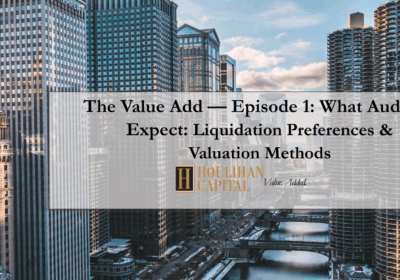Thanks to an accommodative U.S. monetary policy and the market’s optimistic assessment of corporate default risk, we have entered a period that some in the fixed income industry are referring to as “The Golden Age of Credit.” Interest rates have fallen to historically low levels, even for already leveraged companies and firms with higher-risk credit profiles. This change has led to near-record amounts of debt financing activity, with borrowers taking advantage of the favorable conditions to realize reduced interest rates, negotiate relaxed lender covenants and, in many cases, simultaneously provide liquidity to equity-holders via a dividend recapitalization (or “Dividend Recap”).
Dividend Recaps, whereby a special dividend is funded by adding leverage to a company’s capital structure, have seen a particularly dramatic uptick in recent months. Following a shocked Q2 2020 that apparently saw zero Dividend Recaps completed, private-equity firms began executing these deals through their portfolio companies at a pace approaching the brief record-setting heights of early 2017 and surpassing the extraordinary period in 2014 when the Fed was still maintaining a near-zero target rate despite the U.S. being years into the post-Great Recession bull market. S&P Capital IQ Leveraged Commentary & Data estimates dividend recapitalization volume for majority PE-owned borrowers was $32.7 billion from July 1, 2020 through February 9, 2021, or approximately $13.4 billion per quarter on average. The per-quarter average was less than $5 billion over the same period a year prior (July 1, 2019 through February 9, 2020).
As a result of the increased rate of borrowing for Dividend Recaps and other purposes, the leverage ratio (i.e., debt to EBITDA) for many companies has increased too. In fact, total leverage for high-yield U.S. borrowers as tracked by BofA Global Research reached 6.11x in October 2020, the highest level on record. In this time of elevated leverage, it is prudent to remind ourselves that debt is always accompanied by risk. A debt financing or leveraged transaction challenges the ability of the post-transaction firm to generate sufficient cash flow to service debts and continue operations as a going concern. In other words, any leveraged transaction, such as a Dividend Recap, burdens the surviving entity with financial obligations that could threaten the viability of the company.
If a company cannot pay its debts and becomes insolvent, on top of the obvious financial risks stemming from default and bankruptcy, creditors’ interests can be challenged as a fraudulent conveyance. A finding of fraudulent conveyance can result in the reversal, or unwinding, of an entire deal, potentially causing significant losses to the parties and at a minimum, extensive litigation. By their structure, leveraged transactions extend the opportunity for creditors to present a legal challenge to the solvency of the borrower years after a deal closes. However, for a fraudulent conveyance claim to succeed, the courts must rule that the transaction was not consummated at “reasonably equivalent value.” Requirements for this finding include insolvency of the borrower, inability to pay debts as they mature, or inadequate capital to fund operations.
Due to fraudulent conveyance concerns in a leveraged transaction, such as a Dividend Recap, best practice calls for stakeholders, including new lenders, selling parties, and/or directors, to seek an independent solvency opinion in conjunction with closing of the deal. In a solvency opinion, tests developed specifically to address the legal requirements for a fraudulent conveyance ruling are applied, assessing the subject firm’s ability to fulfill proposed financial obligations, service its debts, and maintain its operations post-transaction.
Analyses that Delaware and other courts consistently rely upon to assess issues of solvency include:
- Balance Sheet Test
- Cash Flow Test
- Capital Adequacy Test
- Capital Surplus Analysis
Houlihan Capital is an expert in applying these tests and rendering independent solvency opinions. A Houlihan Capital solvency opinion provides critical valuation information to interested parties in a leveraged transaction, which can reduce risk and uncertainty for a borrower’s Board, investors, and other stakeholders. We have a 25-year history of working closely with our clients’ management, investors, legal counsel, regulators, and auditors on matters of borrower solvency.
For further information regarding independent valuation services, including solvency opinions, please contact:

Grant Casteel
Director
gcasteel@houlihancapital.com
(312) 450-8644
Houlihan Capital is a leading, solutions-driven valuation, financial advisory, and boutique investment banking firm committed to delivering superior client value and thought leadership in an ever-changing landscape. The firm has extensive experience in providing fairness and solvency opinions, and objective, independent, and defensible opinions of value that meet accounting and regulatory requirements. Our clients include some of the largest asset managers, private equity funds, hedge funds, fund administrators, and both public and private operating companies, all of whom benefit from our comprehensive valuation and financial advisory services. Houlihan Capital is a Financial Industry Regulatory Authority (FINRA) and SIPC member. We are SOC-compliant and committed to the highest levels of professional ethics and standards.
Download the PDF whitepaper here:



